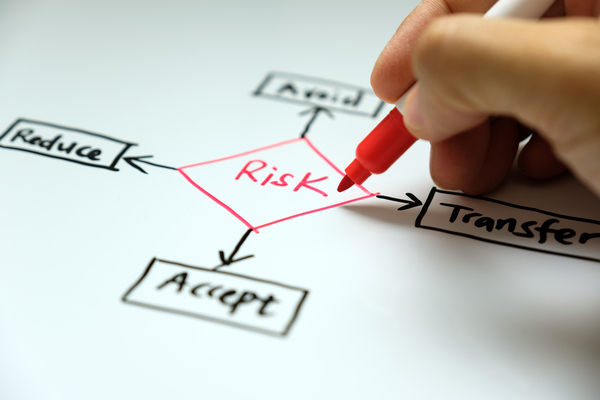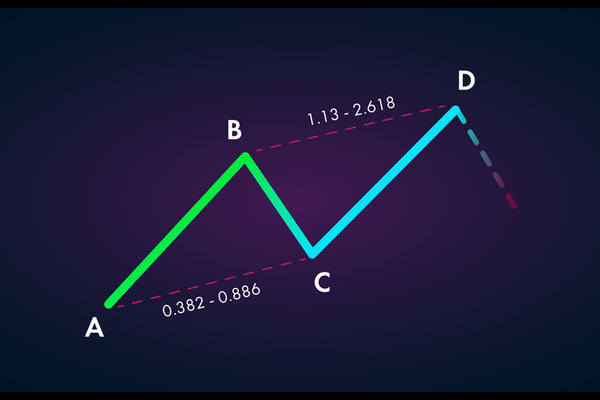CFD trading lets you make money from price movements of financial instruments without owning them. This guide will show you how to trade a CFD, including what CFD trading is, what you need to get started and how to manage risks.
CFD trading allows you to speculate on price movements of many financial instruments without owning them, with leverage and margin. Knowing what leverage, margin requirements and trading costs are, and how to open and close a CFD position is key to CFD trading and managing risks. Managing risks with stop loss and take profit strategies is crucial to protect your investments and lock in profits in CFD trading.

Asset Classes and Market Opportunities in CFD Trading
Trade CFDs let you speculate on price movements of many financial instruments without owning them. Thousands of instruments, including forex pairs, indices and commodities are available to trade. Stocks, indices, forex and commodities are the main asset classes for CFD trading.
What is a Contract for Difference (CFD)?
A Contract for Difference (CFD) is a financial instrument and a financial derivative that lets you speculate on price movements without owning the underlying asset. CFDs allow you to speculate on many financial assets including stocks, forex, commodities, indices and cryptocurrencies. But you must understand market conditions like cash settlement based on price differences.
How CFD Trading Works: Long and Short
CFD trading lets you speculate on an asset’s price movement in any direction. You can buy (go long) if you think the price will go up or sell (go short) if you think the price will go down. CFDs are traded on margin, often with leverage, so you can control bigger positions with less capital. Most CFD trades have no expiry date and can be closed at any time, so you have flexibility on contract lengths.
CFD Trading Terminology
Knowing the terminology is key to CFD trading. Terms like leverage, margin, spread, buy and sell price, hedging and stop loss are important to understand how to navigate the complexities.
Opening a CFD Trading Account
Master CFD trading requires knowing how to open a trading account, trade and manage positions. Opening a CFD account involves choosing a good broker and passing the suitability test to make sure you are ready to trade. Experienced traders stress the importance of choosing a good broker to protect their investments and manage risks.

Leverage and Margin Requirements
Leverage and margin requirements are the backbone of CFD trading. By depositing a small percentage of the trade value you can open big positions. But leverage amplifies both profits and losses.
CFD Trading Costs
Knowing the costs involved in CFD trading, including the sell price is key to managing your investments. Costs like spread, commissions, overnight fees and inactivity fees can affect overall profitability and must be considered.
Trade Global Markets with CFDs
CFDs let you trade many global financial markets, including underlying assets like stocks, commodities, indices and currencies. This flexibility makes CFD trading a versatile instrument to speculate across different asset classes.
Benefits and Risks of CFD Trading
CFD trading can be profitable way to participate in the financial markets but you must understand the benefits and risks.
CFD Trading Advantages
Flexibility: CFD trading lets you trade many financial instruments, including stocks, indices, commodities and forex pairs, so you can access global financial markets. This flexibility means you can diversify your portfolio and take advantage of many market opportunities.
Leverage: One of the best things about CFD trading is leverage. Leveraged trading means you can control big positions with small capital, so you can amplify your profits. This is especially useful in volatile markets where price movements are big.
Short Selling: Unlike traditional trading, CFD trading lets you sell (short) an instrument if you think it will go down. You can profit from falling prices, so you can trade in both rising and falling markets.
No Ownership: With CFD trading you don’t own the underlying asset. This means you don’t have to worry about the costs and responsibilities of ownership like storage fees for commodities or dividend payments for stocks.
Tax Efficiency: CFD trading can be tax efficient as you don’t have to pay stamp duty or other taxes associated with traditional trading. This means cost savings and potentially higher returns on your investments.

CFD Trading Risks
Leverage Risk: While leverage can amplify your profits, it can also amplify your losses. So even a small adverse price movement can result in big financial losses, potentially more than your initial investment.
Market Volatility: CFD trading is trading on margin so you’re exposed to market volatility. Sudden price movements can result in big losses if you’re not using proper risk management.
Liquidity Risk: CFD trading is trading with a CFD broker and if the broker goes bankrupt you may not get your funds back. Choose a reputable broker with strong financial stability.
Counterparty Risk: CFD trading is trading with a counterparty (the CFD broker) and if the counterparty defaults you may not get your funds back. Make sure your broker is regulated by a reputable authority.
Overnight Fees: Holding CFD positions overnight can result in overnight fees which can eat into your profits. You must factor these costs into your trading strategy and consider the overall impact on your profitability.
CFD Trading Risk Management
Risk management is a key part of CFD trading especially when you’re in a losing trade. Strategies like stop-loss, take-profit and negative balance protection can help you limit losses and lock in profits.
CFD Trading Regulations and Safety
CFD trading is regulated by various authorities around the world and you need to know the safety measures in place to protect your funds.
Regulatory Bodies and Safety Measures
Financial Conduct Authority (FCA): FCA is the main regulatory body in the UK and regulates CFD brokers and ensures they comply with strict safety measures. This includes capital adequacy, client fund segregation and transparent business practices.
Cyprus Securities and Exchange Commission (CySEC): CySEC is the main regulatory body in Cyprus and regulates CFD brokers and ensures they comply with strict safety measures. CySEC regulated brokers must follow strict financial standards and provide investor protection mechanisms.
Australian Securities and Investments Commission (ASIC): ASIC is the main regulatory body in Australia and regulates CFD brokers and ensures they comply with strict safety measures. ASIC enforces strict compliance standards to protect retail investor accounts and maintain market integrity.
Fund Segregation: Reputable CFD brokers segregate client funds from their own operating funds. This means in the event of broker insolvency client funds are protected and cannot be used to pay the broker’s debts.
Negative Balance Protection: Some CFD brokers offer negative balance protection which means your account balance will not go below zero even if the market moves against you. This is an added layer of safety so you can’t owe more than your initial investment.
CFD trading is trading in many ways. Success is in knowing how CFDs work, using advanced strategies and disciplined risk management.
Disclaimer: This material is for general information purposes only and is not intended as (and should not be considered to be) financial, investment or other advice on which reliance should be placed. No opinion given in the material constitutes a recommendation by EBC or the author that any particular investment, security, transaction or investment strategy is suitable for any specific person.









